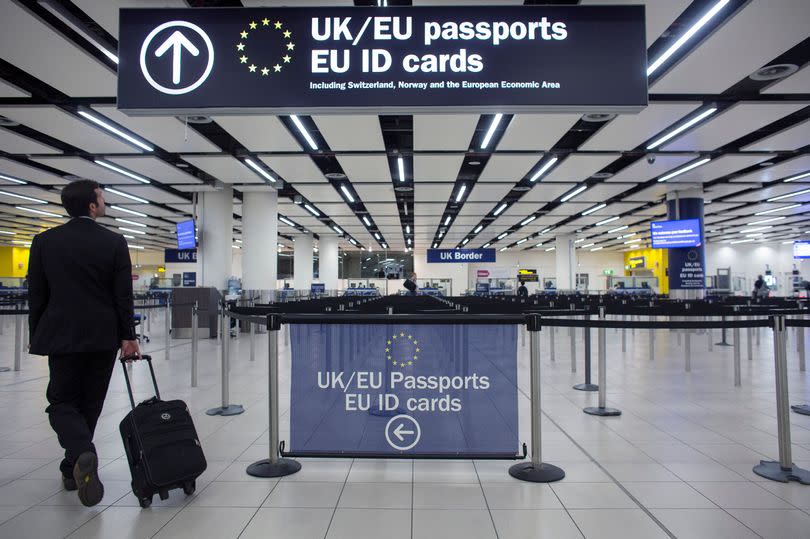Travellers entering EU countries like Spain set to have fingerprints scanned from this year

British travellers are set to have their fingerprints scanned when they enter EU countries from later this year.
In a few months time, travel to destinations such as Spain, Italy, France and Greece is due to change for those with a British passport. The EU's Entry/Exit System (EES) is an automated IT system that is designed to register travellers from third-countries, both short-stay visa holders and visa exempt travellers, each time they cross an EU external border.
Since the UK left the EU, British passport holders have fallen into that group. The system will register the person's name, type of travel document, biometric data - fingerprints and captured facial images - and the date and place of entry and exit. It will also keep a record of anytime you are refused entry to a country, reports the Mirror.
Read More: Travel expert urges holidaymakers to do 10 vital things before jetting off - here's the checklist
The EES will replace the current system of manual stamping of passports. EU officials say manual stamping is "time consuming, does not provide reliable data on border crossings and does not allow a systematic detection of overstayers". The new system will likely make it harder for people to move around the Bloc without the right permission.
The system is due to launch this autumn. ABTA - The Travel Association - has explained what travellers can expect when the system comes into force.
How will it work and when will it launch?
Once the new system is live, when you go through passport control on arrival, as well as providing your passport you will also need to have a photo of your face taken, and your fingerprints scanned. EES is due to be introduced in autumn 2024, however an exact date is still to be confirmed. Rumours currently suggest October 6 is the likely start date.
Who will it apply to?
It will apply to those travelling for a short stay, from what the EU call a ‘third country’. These are people who are not an EU citizen or a citizen of the Schengen area. So it will apply to most people travelling from the UK.
A short stay refers to visits, holidays or business trips that have a duration of up to 90 days and are taken within a 180 day period. The vast majority of travel between the UK and Europe will be classed as a short stay. Irish passport holders are exempt from EES. If you are a British passport holder but have EU residency, you are also exempt from EES.
Which countries will it apply to?
When EES comes in, these are the countries that will be using it:
Austria, Belgium, Bulgaria, Croatia, Czech Republic, Denmark, Estonia, Finland, France, Germany, Greece, Hungary, Italy, Latvia, Lithuania, Luxembourg, Malta, Netherlands, Poland, Portugal, Romania, Slovakia, Slovenia, Spain and Sweden.
In Cyprus and Ireland, despite being countries of the European Union, passports are still stamped manually.
Will it cause queues leaving the country?
In most cases, the EES checks will take place in Europe – when you arrive at your destination airport or port. However, if you are travelling via the Port of Dover or via international train from the UK (London St Pancras and Folkestone), then these checks will happen when going through the passport control in the UK, on your departure.
This is because there is a dual border – both British and French borders – at these locations. However, you won’t need to do these checks again when you arrive on the other side.
There have been repeated warnings that the extra time taken for people to complete their initial registration will cause long queues at the Port of Dover, Eurostar and Eurotunnel terminals.

 Yahoo News
Yahoo News 
